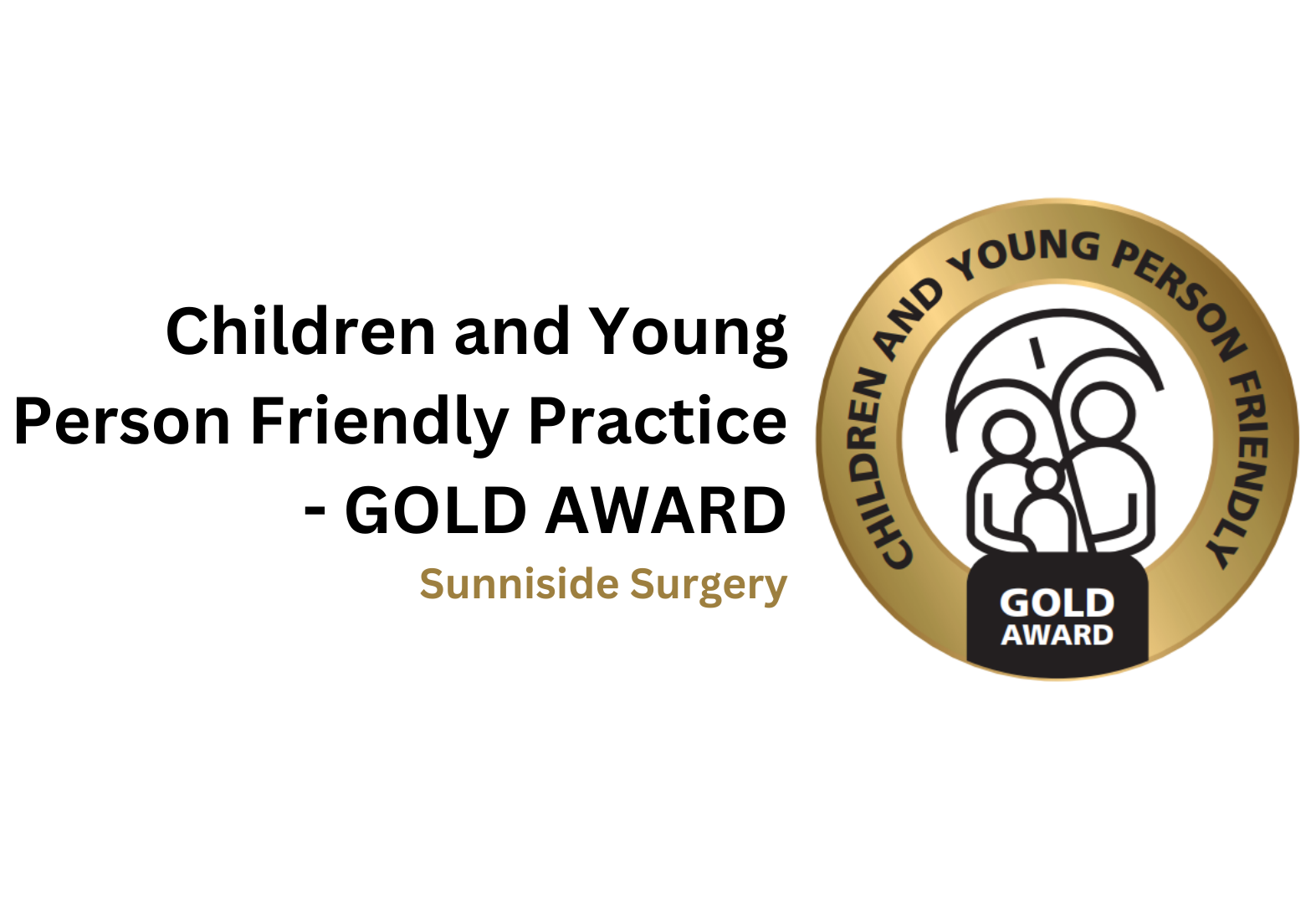RSV Vaccination
What is RSV and is there a vaccine?
Respiratory syncytial virus (RSV) is a major respiratory virus that is common over the winter period, typically November to February.
Who is at risk?
RSV can be especially dangerous for infants and the elderly.
RSV is most common in infants under 1 year old. Babies are particularly vulnerable to RSV lung infections as they have small airways and have limited immunity against the virus which can lead to a condition called bronchiolitis that causes inflammation in the lung.
Infants with severe bronchiolitis may need intensive care and the infection can be fatal. Older adults can also be at risk of severe RSV lung infections, and the virus is a cause of illness and mortality in people aged 75 years and older.
The symptoms of RSV
RSV may cause a cough or a cold, wheezing, shortness of breath, tiredness and fever. Most cases are not serious and clear up within 2 to 3 weeks. You can find out more about the symptoms of RSV on the NHS site.
RSV can also cause bronchiolitis in infants, which can make it difficult to breathe and feed. RSV bronchiolitis symptoms may include difficult, fast or noisy breathing and being unsettled or difficult to comfort.
RSV vaccination
From August 2024 in Scotland and September 2024 in England, Northern Ireland and Wales, pregnant women at week 28 or later and everyone aged 75 to 79 or turning 75 years old on or after the 1 September will be offered a vaccine to protect themselves or their babies against Respiratory Syncytial Virus (RSV)
Preventing the spread of RSV
RSV can spread through coughs and sneezes.
You can help to prevent the spread of the virus by covering your mouth and nose when you cough or sneeze (ideally with a tissue, or else into the bend of your elbow), and you can wash your hands with warm soapy water frequently to kill the germs.
If you have symptoms that could be RSV you should try and avoid young babies. It is perfectly okay for parents to ask people with colds to keep away from newborn babies, particularly in the first few months, and for babies born prematurely.
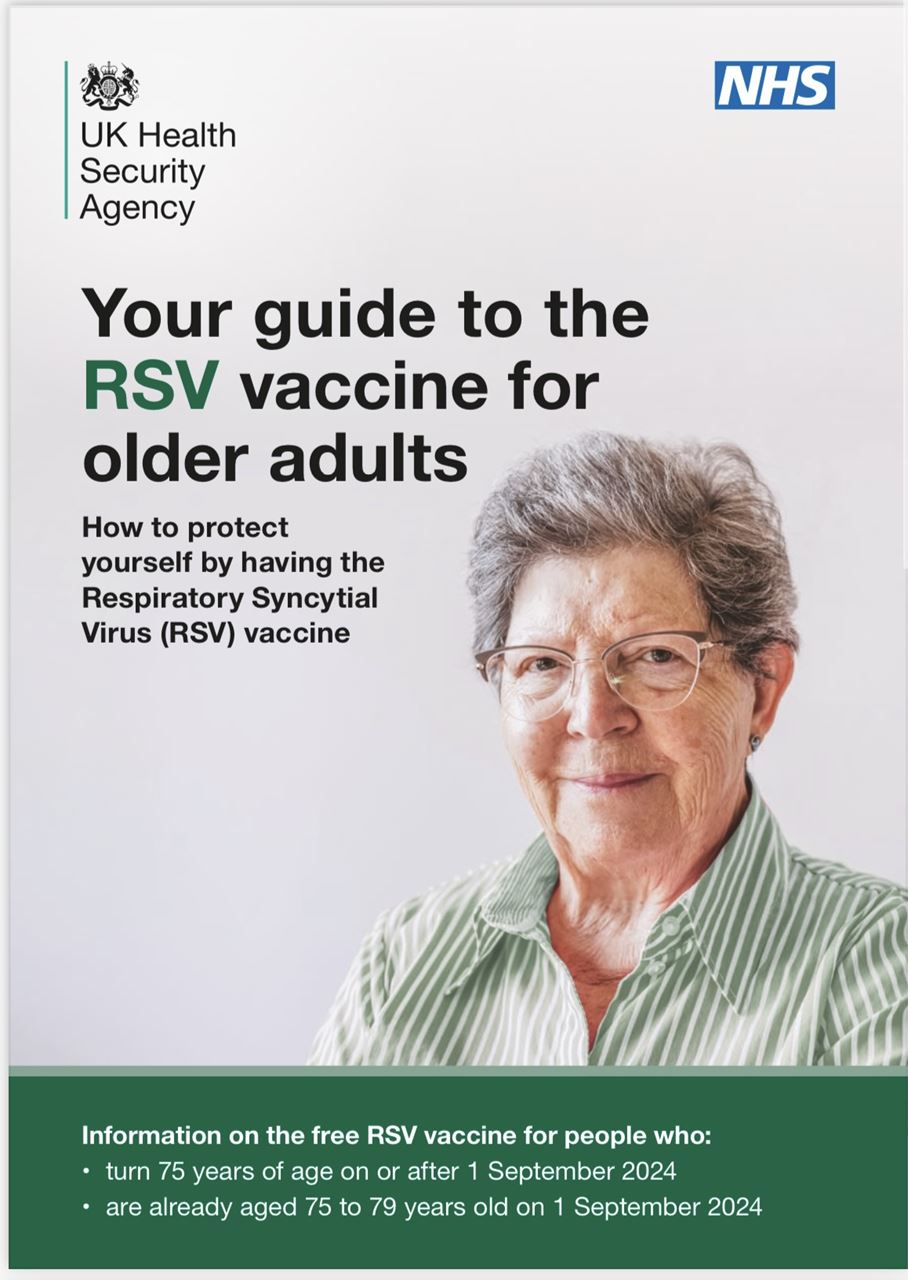
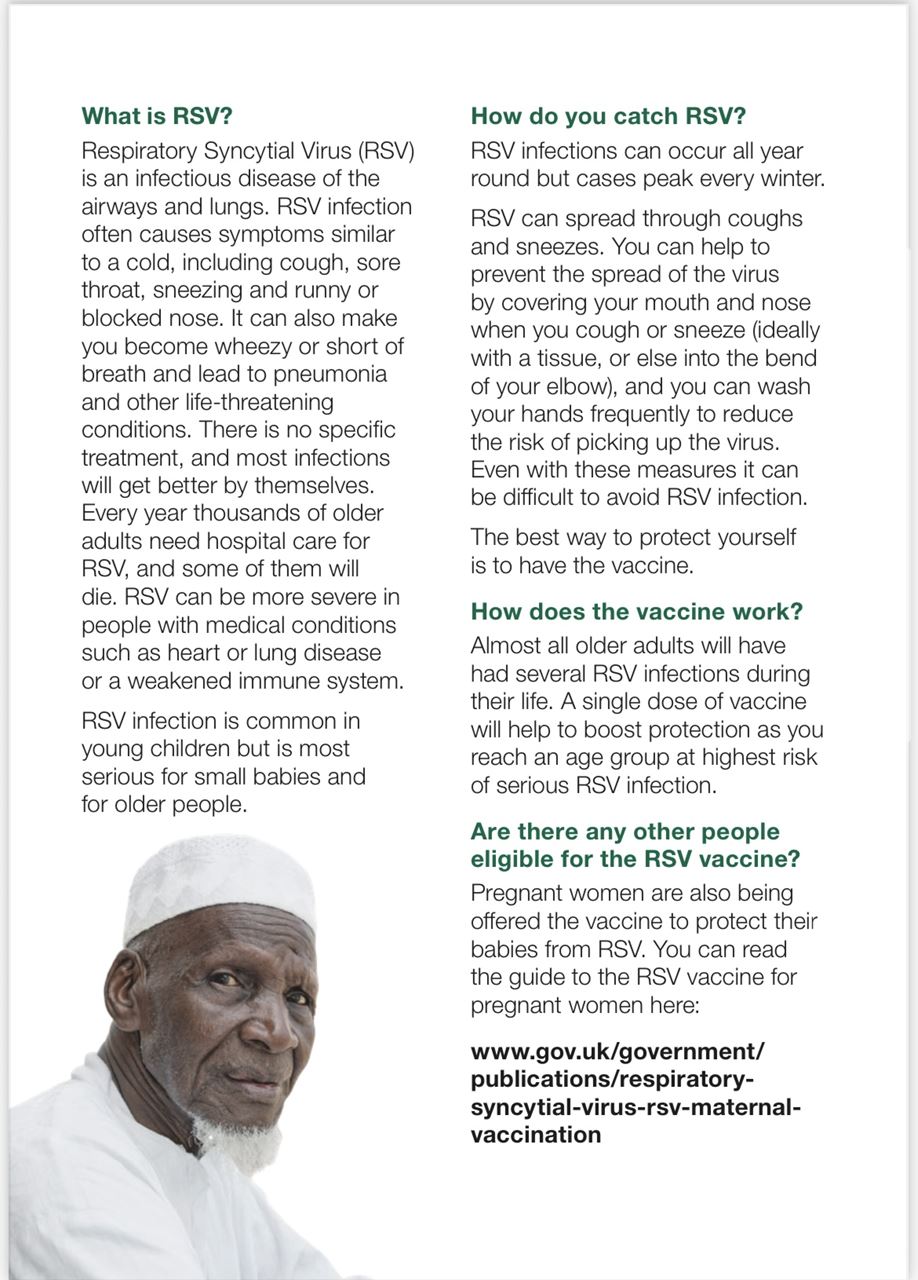
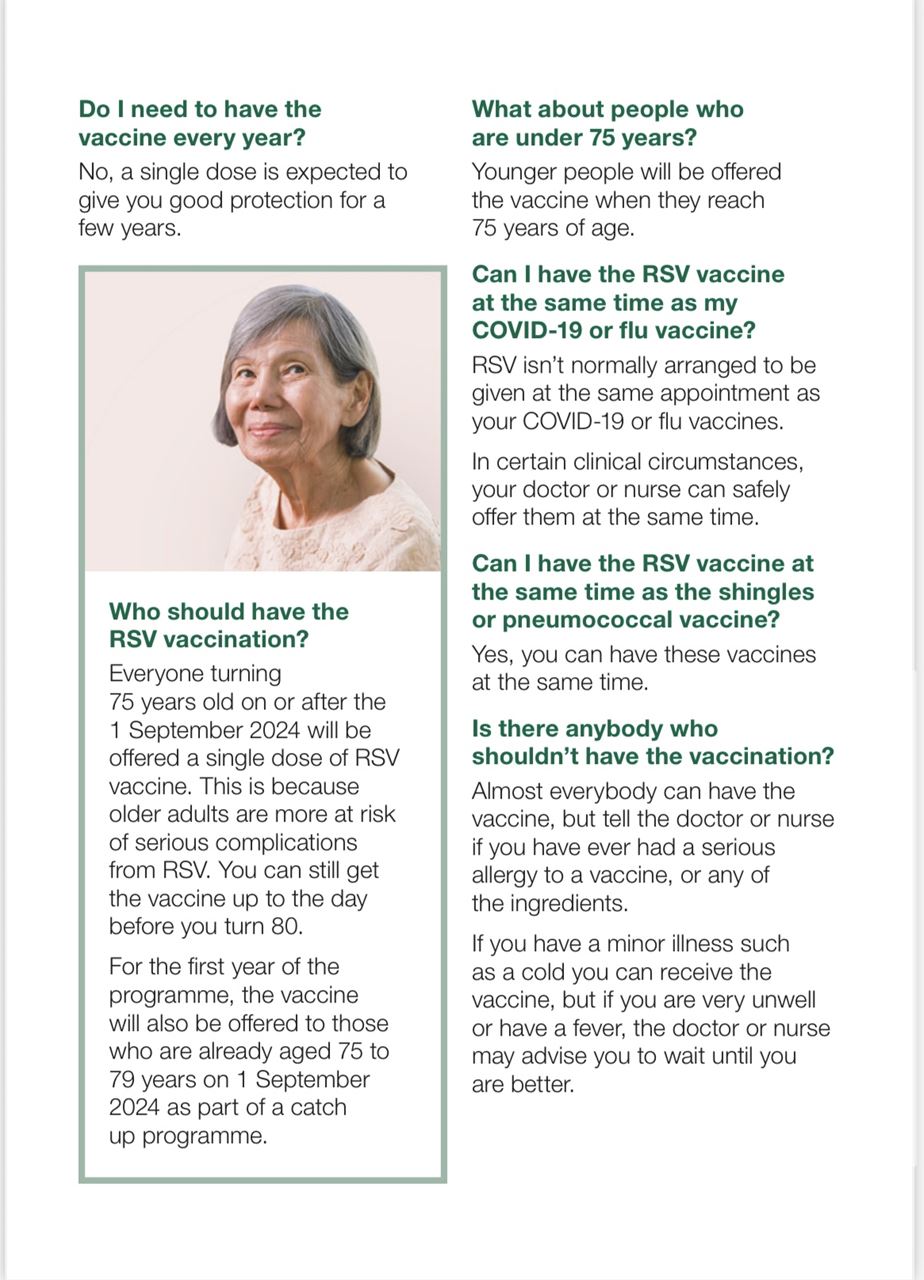
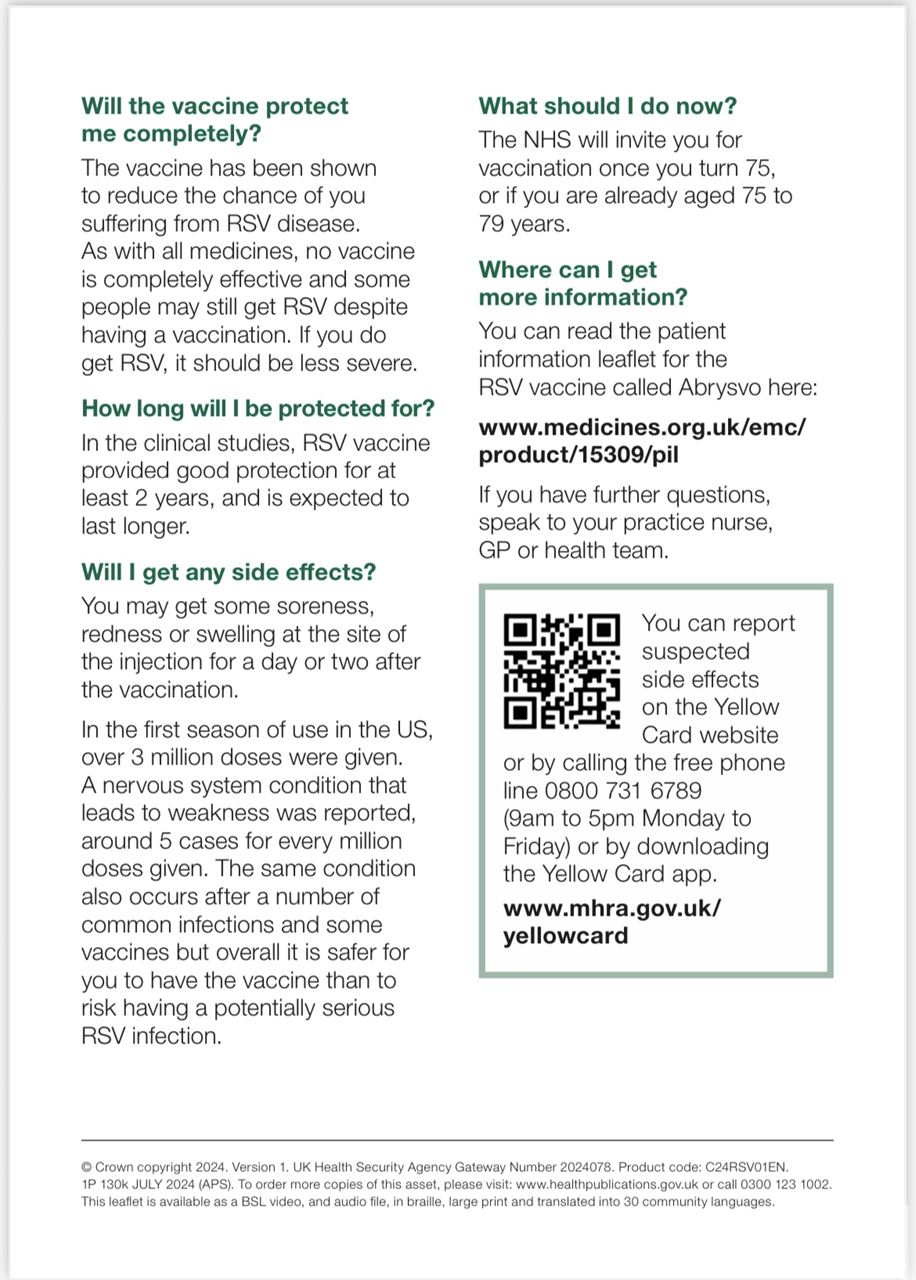
Page created: 20 August 2021
